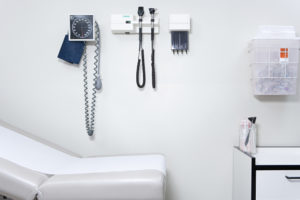The JBS Swift Beef Company, located in Greeley, Colorado, has expanded its recall of its beef products because of E coli. contamination fears. The original recall covered 41,000 pounds of products distributed in Arizona, California, Colorado, Florida, Illinois, Michigan, Minnesota, Nebraska, Oregon, South Carolina, Tennessee, Utah, and Wisconsin, but the company has now greatly expanded the recall to include 380,000 pounds of products. It is not yet clear what additional states may be affected by the expanded recall. All products covered by the expanded recall were produced by the company on April 21st.
The company issued the following statement on June 28th:
GREELEY, CO (June 28, 2009) – On June 24, 2009, JBS Swift Beef Company of Greeley, Colorado, in cooperation with the U.S. Department of Agriculture, conducted a voluntary recall of 41,280 pounds of whole muscle cut beef products that may have been contaminated with E. coli O157:H7 bacteria. Today, after consultation with the USDA and thorough review of our internal records, we are voluntarily expanding our recall to cover an additional 380,000 pounds of specific products produced on April 21, 2009.
While the product was distributed as whole muscle cuts, some of this product was likely further processed through trimming and grinding into ground beef by our customers. According to USDA, some of this ground product might have been associated with illness.
The whole muscle cuts subject to the recall were produced at JBS Swift Beef Company’s facility in Greeley, Colorado, USDA EST. 969, on April 21, 2009, and distributed nationally and internationally. The list of whole muscle cut beef products subject to the recall is available on the USDA’s Food Safety and Inspection Service website at
http://www.fsis.usda.gov/Fsis_Recalls/index.asp.
“We continue to work closely with the USDA to ensure that product is removed from the marketplace and the recall is completed successfully," said Chandler Keys, JBS Spokesperson. "It is important for consumers to note that the recalled product from the date in question was sold by JBS as whole muscle cuts, not as ground beef. The ground beef that might have been associated with illness was produced by other companies who often do not use the antimicrobial intervention steps we employ in our facility to reduce the risk of the beef products. Nevertheless, we have agreed to expand our recall of whole muscle cuts out of an abundance of caution for consumers.”
Consumers who may be concerned about beef they purchased recently should contact their local retailer to determine if it is part of the recall. Consumers with questions may contact the JBS Consumer Hotline at (800) 685-6328, option 1. Media with questions about the recall should contact company spokesperson Chandler Keys at 800-685-6328, option 3.
Ground beef should be cooked to a high enough temperature to kill harmful bacteria (at least 160 degrees F.). The best way to be sure ground beef is properly cooked is to use an accurate food thermometer. For more information on this recall, visit USDA’s FSIS recall webpage at http://www.fsis.usda.gov/Fsis_Recalls/index.asp. For more information about food safety, visit the USDA’s Food Safety and Inspection Service web site, www.fsis.usda.gov, or the centers for Disease Control and Prevention web site, www.cdc.gov.
Those particularly at risk include the elderly, the very young and the immunocompromised. According to WebMD, symptoms to keep an eye out for include:
Children are more likely than adults to develop symptoms of E. coli O157:H7 infection. Most people with the infection will have:
- Severe stomach cramps and stomach tenderness.
- Diarrhea, watery at first, but often becoming very bloody.
- Nausea and vomiting.
Some people who are infected with the bacteria do not notice any symptoms. They may spread the bacteria to others without knowing it.
There are many conditions with symptoms similar to those of E. coli infection. Diagnosis of E. coli infection can be complicated by the fact that most bacterial infections that cause diarrhea are accompanied by a high fever. If you have no fever or only a mild fever, your doctor may suspect that something other than bacteria is causing your symptoms.
Bloody diarrhea is common in confirmed cases of E. coli infection, but the bacteria also should be considered a possible cause of non-bloody diarrhea. For more information on when to call a doctor about non-bloody diarrhea, see the topic Diarrhea, Age 12 and Older or Diarrhea, Age 11 and Younger.
Symptoms of E. coli infection usually end in about a week with no further problems. But severe blood and kidney problems may occur 2 to 14 days after the onset of diarrhea.1 These problems can cause kidney failure and sometimes long-term disability or death in some children and older adults.
If you think that you or a family member have been exposed and any of the associated symptoms are observed, seek medical treatment immediately.

Bret Hanna of Wrona DuBois in Utah, focuses exclusively on litigating plaintiffs’ medical malpractice and catastrophic personal injury cases. He has represented clients in state and federal courts, in mediations, and in administrative proceedings in Michigan and Utah since 1991.











Comments for this article are closed.